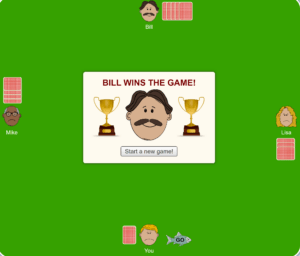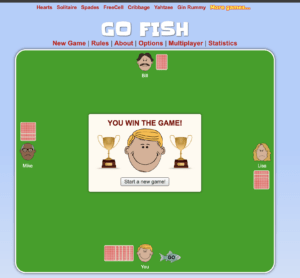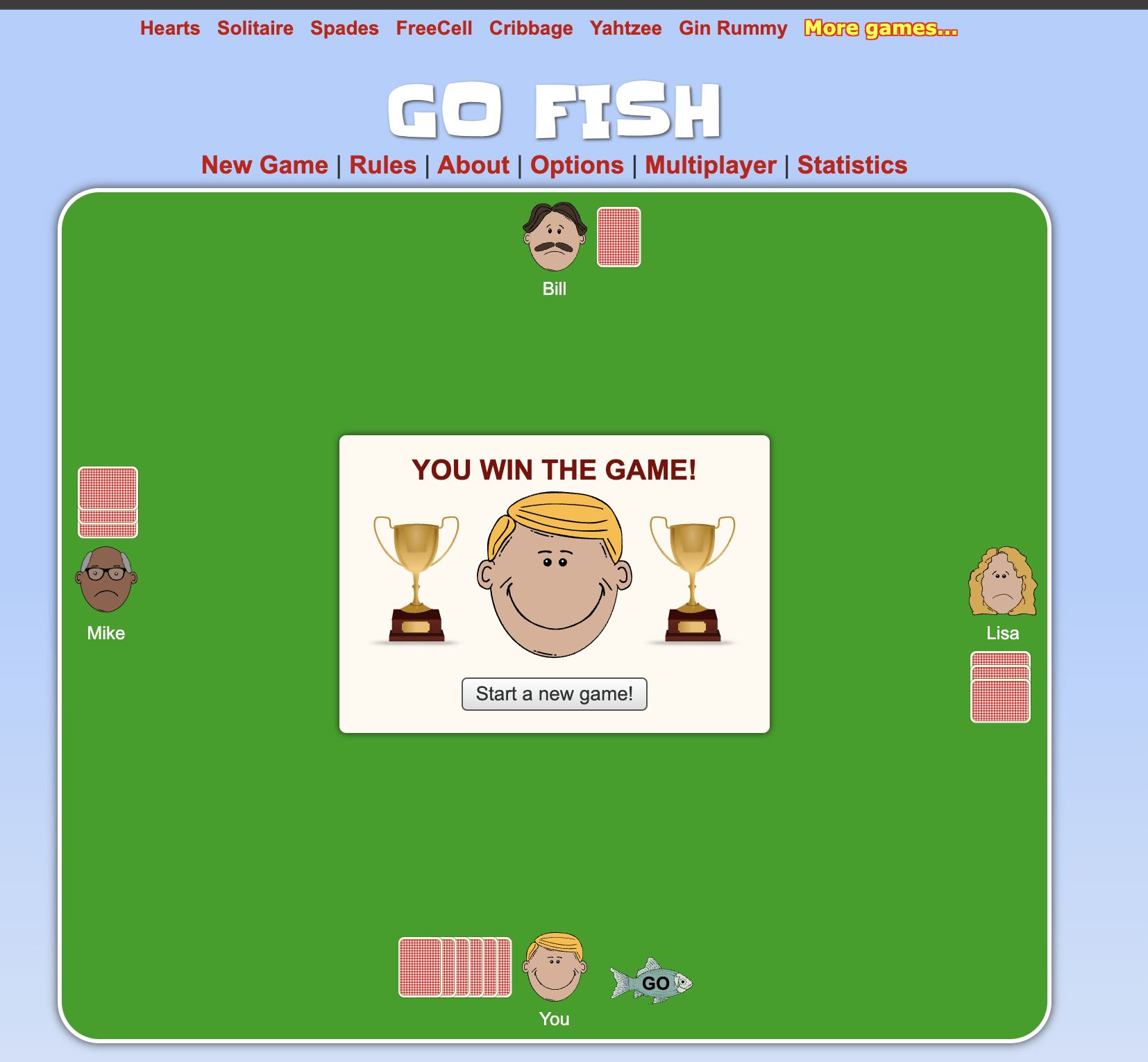For this week’s critical play, I decided to play Go fish online which was created by Einar Egilsson for his 6 year old son Daniel as well as other kids, and possibly adults and is available on the web. I argue that the transparent role of randomness/chance in determining the winner works to make Go Fish more addicting rather than less by playing upon the player’s ego, and bloating perceptions of the chances of winning. I would like to first outline some key ways that Go fish displays prominant bouts of randomness in ways that are completely obvious to all players:
- cards you are dealt
- stealable cards possessed by other players and who has them
- cards that you may fish from the pile
Furthermore, on the site it is outlined that there is pretty much no strategy to the game besides using your memory, and the game is otherwise up to chance. The simplicity of the game and the large role of chance work to communicate to players that those who have the upper hand or win are put in that position randomly. In this game you play with 3 other AI players. I noticed that in the first round one of the AI players, Bill, seemed to take a larger lead over the others, almost seeming to be smarter than the others (pictured below). As a spectating friend affirmed, “Its all just random but there is an element of skill that feels like it justifies it ”

At first this made me angry, feeling like I needed to play again in order to beat Bill specifically because I was embarressed that another player had seemingly discovered strategy in a game that felt simple and not skill based. When I finally did when, this bloodlust was quenched, as Bill and the other players all frowned, giving me pleasure from the emotions invoked during the game (pictured) . However, in between losing 4 games I had also come to realize that each of the AI players switched the role of playing significantly better and luckier than the others. As a result of this change in who comes out winning in addition to the obvious role that chance plays in determining the winner, players are made to feel like after a certain amount of games they eventually must win.

Additionally, some mechanics of the game struck me as particularly dangerous for those with a gambling addiction. Notably, the fact that someone can easily steal all of your cards at once when you are close to having 4 in a row to put down can enact the “near miss” effect that is discussed as a key psychological tool to keep people addicted to slot machines as outlined in the reading. One difference I noted between this game and a traditional slot machine is that this game does nothing to convince the player that the game is “real”, that is that there are real players on the other end of things or that playing the game is at all similar to how it would be in real life. One might expect players to feel skeptical of the obviously fake environment, but this was not the case. As my situationship told me after I explained the assignment earlier, wait till he forgot about it, and then forced him to mysteriously play Go fish: “That was really fun, like if there was money on this I’d totally play… wait! gambling!” As discussed similarly in the reading, the fact that the role of chance is visible to the player, yet does not dissuade them from playing seems pretty dangerous to me.




